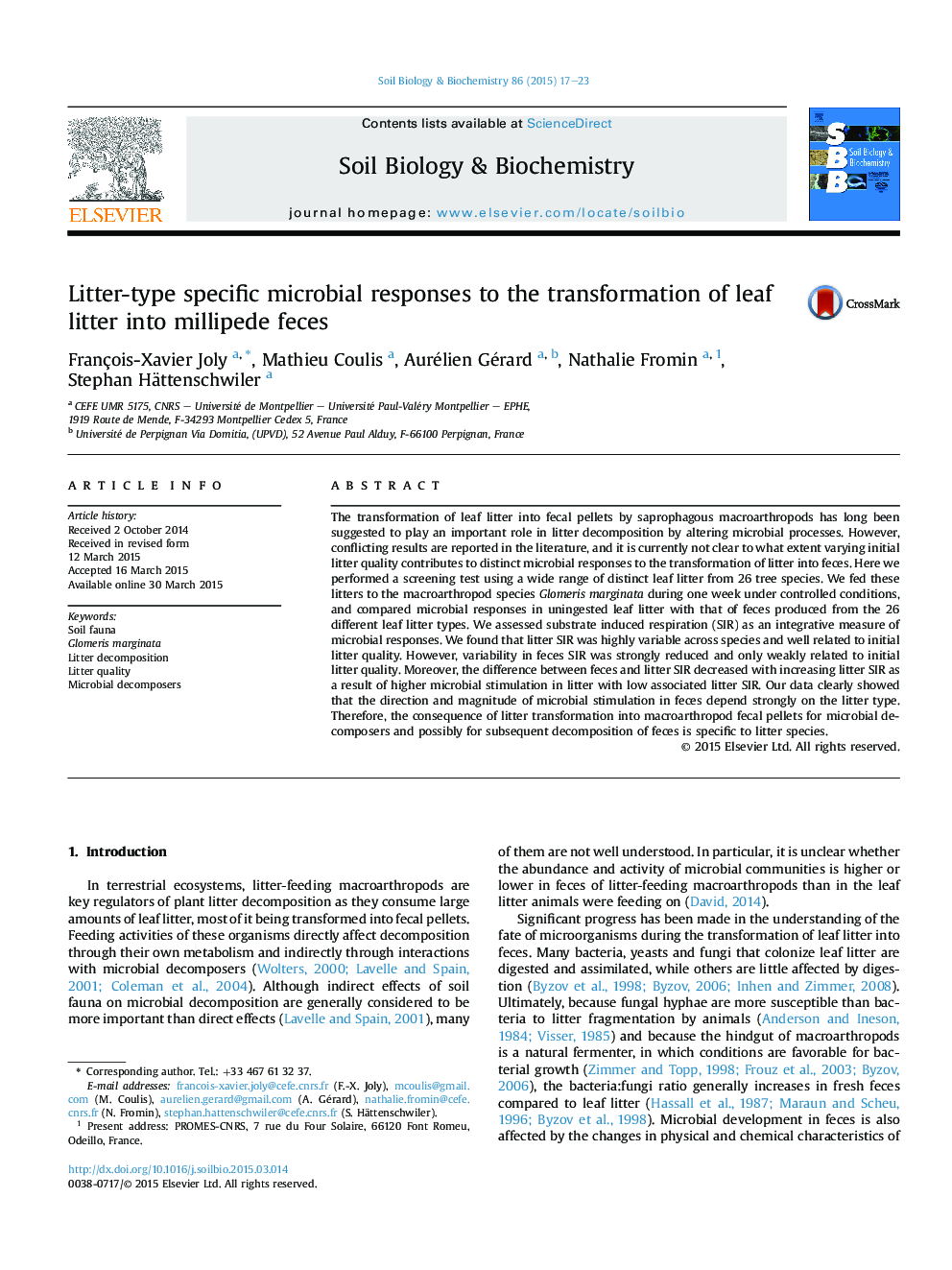| Article ID | Journal | Published Year | Pages | File Type |
|---|---|---|---|---|
| 2024516 | Soil Biology and Biochemistry | 2015 | 7 Pages |
Abstract
The transformation of leaf litter into fecal pellets by saprophagous macroarthropods has long been suggested to play an important role in litter decomposition by altering microbial processes. However, conflicting results are reported in the literature, and it is currently not clear to what extent varying initial litter quality contributes to distinct microbial responses to the transformation of litter into feces. Here we performed a screening test using a wide range of distinct leaf litter from 26 tree species. We fed these litters to the macroarthropod species Glomeris marginata during one week under controlled conditions, and compared microbial responses in uningested leaf litter with that of feces produced from the 26 different leaf litter types. We assessed substrate induced respiration (SIR) as an integrative measure of microbial responses. We found that litter SIR was highly variable across species and well related to initial litter quality. However, variability in feces SIR was strongly reduced and only weakly related to initial litter quality. Moreover, the difference between feces and litter SIR decreased with increasing litter SIR as a result of higher microbial stimulation in litter with low associated litter SIR. Our data clearly showed that the direction and magnitude of microbial stimulation in feces depend strongly on the litter type. Therefore, the consequence of litter transformation into macroarthropod fecal pellets for microbial decomposers and possibly for subsequent decomposition of feces is specific to litter species.
Related Topics
Life Sciences
Agricultural and Biological Sciences
Soil Science
Authors
François-Xavier Joly, Mathieu Coulis, Aurélien Gérard, Nathalie Fromin, Stephan Hättenschwiler,
